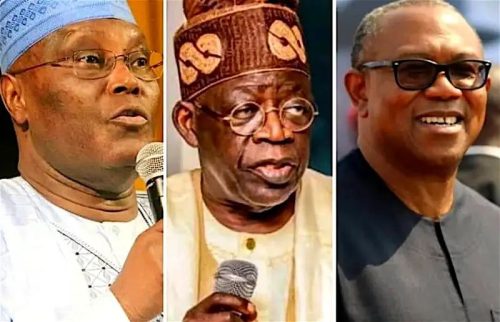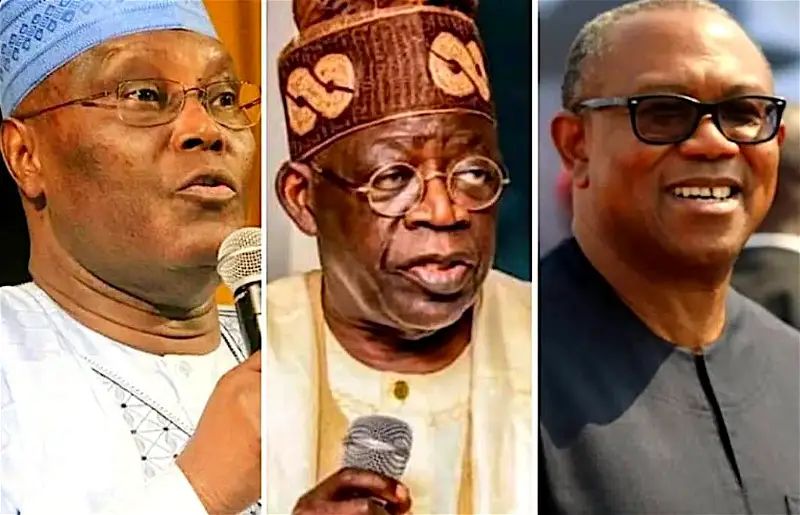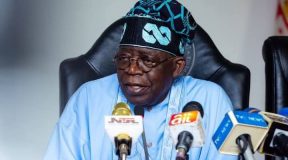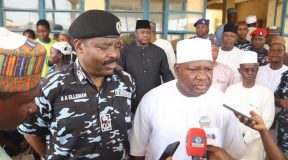By Farooq A. Kperogi
Over the last few months, I have unconsciously transitioned from keyboard diarrhea to mental constipation and have pulled back from social media engagements. I even struggle to write my weekly columns.
It’s precisely because toxic, unthinking, IMF-manufactured, right-wing economic populism has become hegemonic and taken firm roots in Nigeria. Blaming Tinubu for his right-wing economic policies while ignoring the fact that his opponents subscribe to the same policies is the kind of hypocrisy my mental, emotional, or ideological constitution is incapable of tolerating.
Right-wing or conservative economic populism manifests differently in different countries, but its core lies in weaponizing the general population’s concerns and frustrations, particularly around economic issues, to advocate poisonous, anti-people, market-centric, neoliberal economic policies while blaming an invisible elite or establishment class that supposedly controls power and resources to the detriment of the majority.
In Nigeria, conservative economic populism consists of the intentionally deceitful and absurd but nonetheless successful (at least for now) demonization of subsidies, especially petrol subsidies.
Nigeria’s elite-created economic woes are fraudulently attributed to the dispensation of subsidies. The masses of unsuspecting chumps in the country are then whipped into a senseless frenzy about an invisible, unidentified class of “subsidy thieves” who putatively suck up our commonwealth through petrol subsidies and who would wither and perish when subsidies are removed.
That’s classic right-wing economic populism. Well, experience is showing that it’s actually the masses that are withering and perishing after petrol subsidies have been removed. An acquittance who passionately opposed my recommendation to Tinubu to not remove petrol subsidies in my April 29, 2023, column by regurgitating the banal talking points of hard-hearted neoliberal hawks reached out to me a few days ago to admit that he was a gormless fool to believe the propaganda that petrol subsidies didn’t benefit the masses.
It took the collapse of his small transportation business and the descent of his previously thriving relatives into the dark depths of despair and poverty in less than one year after the removal of petrol subsidies for him to come to the realization that citizens of every country need subsidies.
Another central plank of Nigerian right-wing economic populism is the advocacy for the devaluation of the naira. It’s also known by the fancy name of “floating the naira.” The idea that the naira is “over-valued” and should be allowed to find its true worth in the crucible of demand and supply is a standard arsenal in the rhetorical armory of conservative economic populists in Nigeria.

Yet another favorite shtick of the treacherous tribe of neoliberal vampires in Nigeria is to capitalize on the well-known inefficiency of civil service bureaucracies to advocate the privatization of everything and the mass retrenchment of workers.
Yet these are really old, discredited Structural Adjustment Program policies that the IMF and the World Bank imposed on developing countries, which devastated national economies, caused the untimely deaths of hundreds of thousands of people, which the IMF was compelled to slyly apologize for amid mounting evidence of their tragic failure.
The same rotten and venomous policies have been repackaged, aromatized, and re-presented to developing countries as new and effective elixirs. Every developing country that has embraced them is now coping with potentially explosive internal turmoil.
Like Nigeria, Egypt recently accepted to devalue its currency by more than 68 percent and remove subsidies that lighten the burden of existence for ordinary folks in exchange for an $8 billion loan from the IMF.
Everyone within striking distance of becoming president in Nigeria in 2023 subscribed—and still subscribes—to the consensus that the IMF and the World Bank are inviolable economic oracles that must not be disobeyed, that subsidies must be eliminated and the poor be left to fend for themselves, and that the market is supreme and should be left to determine the value of everything.
In fact, the other day, PDP presidential candidate Atiku Abubakar put out a press statement titled “Argentina’s Javier Milei approach to reforms should serve as a lesson for Tinubu” where he extolled the dangerously right-wing Argentinian president Javier Milei whose rightwing economic populist policies are destroying the fabric of his country.
“I read a recent report in Reuters titled: ‘Argentina’s market double down on Milei as investors ‘start to believe’,” he wrote.
Well, the same Western financial establishment is already praising the outcome of Tinubu’s economic policies. A March 8, 2024, report from Bloomberg, for instance, has said that “Foreign investor demand for Nigerian assets surges as reforms instituted by President Bola Tinubu’s administration starts paying off.”
Similarly, one David Roberts, identified as a former British Council Director in Abuja, bragged the other day that Nigeria’s economy “posted a GDP growth of 3.46% in quarter 4” as a result of Tinubu’s economic reforms.
He wrote: “Why would a country with a severe infrastructural deficit invest more money on a wasteful expenditure such as cheap petrol, instead of building schools, hospitals, dams and a national railway system? It is evident that it had to go.
“We joined the World Bank and the International Monetary Fund in saying as much to the Nigerian government. And at long last, it is gone.”
People outside Nigeria reading about Nigeria in the Western financial press would think Nigerians are now living in El- Dorado as a result of Tinubu’s “reforms”—just like Atiku thinks a favorable Reuters story about the anti-people economic policies of Milei, who is called the “Madman of Argentina,” is already yielding excellent outcomes.
If you do the bidding of the Western establishment, they will always make up statistics to show that your economy has grown. I called attention to this in my June 28, 2023, column titled, “Why Tinubu’s Hiring and Firing Frenzy Excites Nigerians.”
I wrote: “What shall it profit a country when it pursues policies that cause the economy to ‘grow’ but cause the people to growl? After the economy has ‘grown’ but the people still groan, where is the growth? The most important growth isn’t the rise in abstract, disembodied, World Bank/IMF-created metrics but in the improvement of the quality of life of everyday folks.”
Milei’s Argentina that Atiku is praising is almost in the same right-wing economic hellscape as Nigeria is. Like Tinubu, Milei began his presidency by removing subsidies for petrol and transportation and devaluing the Argentinian peso by more than 50 percent. In addition, he threw scores of workers into unemployment when he reduced the number of ministries in the country.
He is so market-centric he scrapped a whole host of rules designed to reign in the greed and exploitation of private enterprises. He did this by getting the parliament to approve the principle of “delegated powers” to the executive for one year, which allows him to rule by decree like a military dictator in the name of “economic urgency.”
The result? Like in Nigeria, most Argentinians are having a hard time finding food to eat. A February 1, 2024, CNN story captures it: “‘I don’t know how I will eat.’ For the workers behind Argentina’s national drink, Milei’s reforms are turning sour.”
Argentinian workers periodically go on strike to protest Milei’s punishing right-wing policies. On February 28, all flights were cancelled in the country because air travel workers went on a crippling 24-hour strike.
A March 4, 2024, Bloomberg report said Milei’s policies had caused spending to plunge at shops in Argentina, that firms were seeing double-digit sales declines for third straight month, that the worth of salaries had plummeted amid a paralyzing 250% inflation, and that recession was deepening in the country.
The lead to the story says it all: “Consumers in Argentine are running out of options to shield themselves from runaway price increases as President Javier Milei’s austerity measures send the country deeper into recession.”
That’s Atiku’s exemplar for Nigeria. Peter Obi is, of course, no different. Tinubu, Atiku, Obi, and in fact Yemi Osinbajo are united in their love for rightwing economics, which invariably leads to an increase in poverty, suffocation of workers, rolling back of welfare for common people, etc.
In a perverse way, they are actually worse than Buhari because they are self-conscious conservative economic ideologues. Buhari is merely a know-nothing, bungling, kakistocratic power monger.
The real tragedy is that the vast majority of Nigerians who are ensconced in the narrow ethno-religious political silos built around the personalities of the major 2023 presidential candidates don’t realize that on economic policies, which is what really matters, Tinubu, Atiku, Obi, and Osinbajo are more alike than unlike.
Sadly, Nigerian leftists, who used to be the bulwark against the dangers of conservative economic totalitarianism, have either been coopted or silenced. Only Femi Falana, Majeed Dahiru, I, and a few others consistently stand up to the forces of economic conservatism.
This state of affairs will ensure that Tinubu’s successor will be another neoliberal ideologue who will bludgeon his way to the presidency using religion and ethnicity as cudgels. When he deepens the misery he inherits, he will blame his predecessor for not being a faithful practitioner of the neoliberal gospel. His own successor will replicate his template.
After three terms of this right-wing baloney, Nigeria will be irretrievably gone. The time to pivot from the IMF and the World Bank and to reject everyone who is their poodle is now.
For publication of your news content, articles, videos or any other news worthy materials, please send to nnekatorti@gmail.com. For more enquiry, please call +234-706-806-4347 or whatsapp +234-706-806-4347. To place an advert, please call 07068064347.





